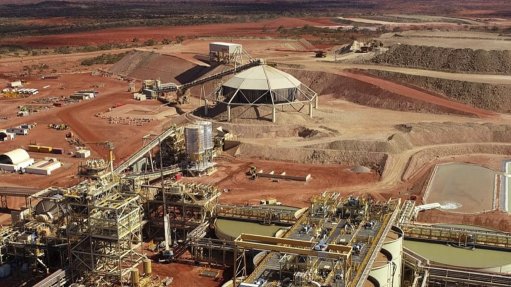Comair announces it has entered business rescue
South African private-sector airline group Comair announced on May 5 that it was going into business rescue. This was to protect the company’s interest and those of its stakeholders. Comair operated the British Airways brand in South Africa brand and the Kulula low-cost carrier brand.
This was a consequence of the halt in air travel and the national lockdown imposed by the South African government in an attempt to contain the Covid-19 pandemic. These measures derailed the execution of a turnaround plan for Comair, which had suffered a loss of R564-million for the first half of the current financial year.
“Comair remains solvent and an important contributor to the South African economy,” assured group CEO Wrenelle Stander. “This is a necessary process to ensure a focused restructuring of the company takes place as quickly as possible so we can take to the skies again as a sustainable business and play our part in the country’s airline industry.”
The flight ban and lockdown forced Comair to cease operations on March 26. “We com- pletely understand and support the government’s reasons for implementing the lock- down; however, as a result, we have not been able to operate any flights,” she pointed out.
The group had been making good progress on its turnaround plan, but the pandemic crisis prevented this from being executed as had been planned. “Now that the phased lockdown has been extended, the grounding is likely to endure until October or even November,” she highlighted. “These extraordinary circumstances have completely eroded our revenue base, while we are still obliged to meet fixed overhead costs. The only responsible decision is to apply for business rescue.”
The appointed business rescue practitioners (BRPs) were Shaun Collyer and Richard Ferguson. Their appointments also took effect on May 5. The JSE approved the immediate suspension of trading in Comair shares. The BRPs would keep all shareholders and stakeholders informed throughout the business rescue process.
This process would be based on Comair’s turnaround plan that the management had already been executing. The plan aimed to cut costs, preserve cash, getting rid of non-performing assets and strengthening the balance sheet. The Section 189A (of the Labour Relations Act) retrenchment process, which had started on March 23, would carry on. This process was being facilitated by the Commission for Conciliation, Mediation and Arbitration.
“Through this process, we intend to rightsize our operations to be more efficient, agile and customercentric,” stated Stander. “This includes, but is not limited to, reconfiguring our network and fleet mix, reviewing portfolios and joint ventures, increased digitisation of the business and new product development and delivery. We are confident that with the work we’ve already done and the support of our stakeholders we will get through this process and will be a more sustainable business, better positioned to continue serving the flying public and contributing to the South African economy.”
The intent was to ensure that Comair would return to operations, in compliance with all the regulations and the health requirements imposed to counter the pandemic. The group would comply with all instructions from the government and would also maintain discussions with the government to bring forward the re-opening of the airline sector. “The health and welfare of our customers, crew and the public is the overriding priority and we will only operate when we are sure we can do so safely,” she stressed.
Before the lockdown, Comair had been operating an all-Boeing fleet of 26 airliners, divided between its two brands. This fleet comprised three 737-400 and twenty-three 737-800 aircraft, of which the three 737-400s and ten of the 737-800s were owned by the group, while thirteen 737-800s were leased. The airline also owned one 737 MAX 8, which it had not been able to operate because of the world-wide grounding of that model, for safety reasons.
Comments
Press Office
Announcements
What's On
Subscribe to improve your user experience...
Option 1 (equivalent of R125 a month):
Receive a weekly copy of Creamer Media's Engineering News & Mining Weekly magazine
(print copy for those in South Africa and e-magazine for those outside of South Africa)
Receive daily email newsletters
Access to full search results
Access archive of magazine back copies
Access to Projects in Progress
Access to ONE Research Report of your choice in PDF format
Option 2 (equivalent of R375 a month):
All benefits from Option 1
PLUS
Access to Creamer Media's Research Channel Africa for ALL Research Reports, in PDF format, on various industrial and mining sectors
including Electricity; Water; Energy Transition; Hydrogen; Roads, Rail and Ports; Coal; Gold; Platinum; Battery Metals; etc.
Already a subscriber?
Forgotten your password?
Receive weekly copy of Creamer Media's Engineering News & Mining Weekly magazine (print copy for those in South Africa and e-magazine for those outside of South Africa)
➕
Recieve daily email newsletters
➕
Access to full search results
➕
Access archive of magazine back copies
➕
Access to Projects in Progress
➕
Access to ONE Research Report of your choice in PDF format
RESEARCH CHANNEL AFRICA
R4500 (equivalent of R375 a month)
SUBSCRIBEAll benefits from Option 1
➕
Access to Creamer Media's Research Channel Africa for ALL Research Reports on various industrial and mining sectors, in PDF format, including on:
Electricity
➕
Water
➕
Energy Transition
➕
Hydrogen
➕
Roads, Rail and Ports
➕
Coal
➕
Gold
➕
Platinum
➕
Battery Metals
➕
etc.
Receive all benefits from Option 1 or Option 2 delivered to numerous people at your company
➕
Multiple User names and Passwords for simultaneous log-ins
➕
Intranet integration access to all in your organisation

















